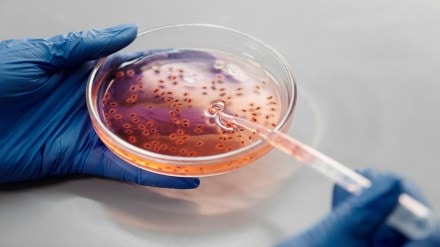GBS outbreak: As Maharashtra’s Pune continues to grapple with the outbreak of Guillain-Barre Syndrome (GBS), the cause behind the surge is believed to be the bacteria Campylobacter jejuni (C. jejuni). The Health Department has received the test reports of some of these patients, and Campylobacter jejuni and norovirus infection have been found, Loksatta reported.
“Bacteria Campylobacter jejuni (C. jejuni) is being believed to be the cause behind the outbreak of Guillain-Barre Syndrome (GBS) in the parts of Maharashtra and Pune. Campylobacter is a trigger. Other tests are negative,” said an official source as quoted by news agency ANI.
According to ANI, the bacteria Campylobacter jejuni has been found in 20-30 per cent of the samples taken from those patients who tested positive for Gullein Barre syndrome.
However, sources also said the investigation continues until the root cause is fully identified. Campylobacter jejuni bacteria is linked to uncooked and waterborne diseases.
“We collected many samples for the testing at NIV Pune ICMR lab and this particular bacterium has been found in 20-30 per cent cases.” Sources further informed ANI quoted.
So far 8 deaths suspected to have been caused by the Gullein Barre syndrome have been reported in Pune and other areas of Maharashtra. A total of 205 suspected patients have been detected till date and 177 patients out of them were diagnosed with GBS.
Recently state government said that 41 patients are from Pune Municipal Corporation, 94 from newly added villages in the PMC area, 29 from Pimpri-Chinchwad MC, 32 from Pune Rural and 8 are from other districts. Out of these patients, 113 have been discharged till now, 50 are in ICU and 20 are on ventilators. Most of the cases in the state have been reported from Pune.
According to media reports, 72 sources in the city has been found with contamination during surveillance. Water samples from various parts of Pune have been sent to the State Public Health Laboratory for chemical and biological testing. The test reports from this laboratory are still pending.
A report by Loksatta revealed that Pune Municipal Corporation, Pimpri-Chinchwad Municipal Corporation and the district administration have started an immediate patient survey in the affected areas. Health department teams are searching for patients showing symptoms of ‘GBS’. Pune Municipal Corporation has surveyed 1,943 houses, Pimpri-Chinchwad Municipal Corporation has surveyed 1,750 houses and a total of 7,215 houses have been surveyed, including 3,522 in rural areas.
What is Campylobacter jejuni?
Campylobacter jejuni is a species of pathogenic bacteria that is commonly associated with poultry. It is also often found in animal feces. According to the Centers for Disease Control and Prevention (CDC), Campylobacter bacteria are a common cause of diarrheal illness. The illness is called campylobacteriosis.
People most commonly get Campylobacter infection by eating raw or undercooked poultry. Eating other contaminated foods, drinking untreated water, and touching animals that carry Campylobacter can also cause infection, CDC reported.
Dr. Kuldeep Kumar Grover, Head of Critical Care and Pulmonology at CK Birla Hospital, Gurugram some of the infections that have been associated with GBS are:
- Campylobacter jejuni (a frequent cause of food poisoning)
- Cytomegalovirus
- Epstein-Barr virus
- Zika virus
- Influenza virus
How GBS is treated?
According to Dr. Grover, there is no cure for GBS, but a number of treatments can be used to accelerate recovery and lessen the severity of symptoms:
- Intravenous immunoglobulin (IVIg): This is done by infusing large amounts of antibodies into the blood. The antibodies may be able to stop the immune system from attacking the nerves.
- Plasmapheresis: This is done by removing plasma (the liquid portion of the blood) from the body and substituting it with healthy plasma or a plasma substitute. This will remove the toxic antibodies from the blood.
- Supportive care: This is a critical component of GBS treatment.
Supportive care involves:
- Pain control
- Physical therapy to maintain muscle function and strength
- Occupational therapy to assist with daily activities
- Respiratory support, including mechanical ventilation, if the muscles used for breathing are involved
Can you prevent GBS?
It is not possible to prevent GBS, but the risk may be decreased by preventing infections that are known to be associated with the disorder. Good hygiene, like frequent handwashing, and vaccinations against infections, including influenza, are examples of how this may be achieved, Dr. Grover said.
